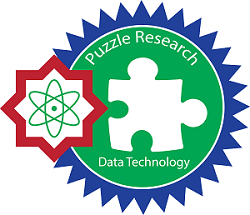Designing an ICT Service Chatbot at the Global Institute
DOI:
https://doi.org/10.57152/malcom.v5i1.1519Keywords:
Artificial Intelligence, ICT Service Chatbot, Conversational Platform, Technical Support EfficiencyAbstract
The design of an ICT service chatbot at Global Institute aims to enhance the efficiency and effectiveness of providing technical support to users, including staff, lecturers, and students. With the increasing demand for Information and Communication Technology (ICT) services, a solution is needed that can provide quick and accurate responses to various technical issues. This chatbot is designed using artificial intelligence (AI) technology that enables natural interaction with users through a conversational platform. The main features implemented in the chatbot include managing technical support requests, automatically resolving common issues, and providing guidance on the use of ICT devices and applications. This research employs an object-oriented development methodology and incorporates an Agile approach to ensure flexibility and responsiveness in development. System trials were conducted involving end users to gather feedback and make necessary improvements. The test results show that the chatbot significantly reduces response time and the workload of the ICT team, as well as improves user satisfaction. Thus, the implementation of this chatbot is expected to positively contribute to the quality of ICT services at Global Institute.
Downloads
References
Bal Ram and Pratima Verma, “Artificial intelligence AI-based Chatbot study of ChatGPT, Google AI Bard and Baidu AI,” World J. Adv. Eng. Technol. Sci., vol. 8, no. 1, pp. 258–261, 2023, doi: 10.30574/wjaets.2023.8.1.0045.
H. Dinh and T. K. Tran, “EduChat: An AI-Based Chatbot for University-Related Information Using a Hybrid Approach,” Appl. Sci., vol. 13, no. 22, p. 12446, 2023, doi: 10.3390/app132212446.
Y. Li, “Enhancing Chatbot Responses Based on Natural Language Processing Techniques,” no. Iciaai 2023, pp. 700–712, 2023, doi: 10.2991/978-94-6463-300-9_74.
L. Kohnke, “A Pedagogical Chatbot: A Supplemental Language Learning Tool,” RELC J., vol. 54, no. 3, 2023, doi: 10.1177/00336882211067054.
M. Senkbeil, “How well does the digital home learning environment predict ICT literacy and ICT self-efficacy? Comparing the predictive power of adolescent and parent reports,” Comput. Educ., vol. 207, 2023, doi: 10.1016/j.compedu.2023.104937.
E. Nuravipah, M. S. Assabana, W. Nugroho, and S. Seipah, “Pengembangan Media Pembelajaran PAI berbasis ICT,” JIIP - J. Ilm. Ilmu Pendidik., vol. 6, no. 1, 2023, doi: 10.54371/jiip.v6i1.1330.
L. Charfeddine and M. Umlai, “ICT sector, digitization and environmental sustainability: A systematic review of the literature from 2000 to 2022,” Renewable and Sustainable Energy Reviews, vol. 184. 2023. doi: 10.1016/j.rser.2023.113482.
B. Li, “Ready for Online? Exploring EFL Teachers’ ICT Acceptance and ICT Literacy During COVID-19 in Mainland China,” J. Educ. Comput. Res., vol. 60, no. 1, 2022, doi: 10.1177/07356331211028934.
J. Yin, T. T. Goh, B. Yang, and Y. Xiaobin, “Conversation Technology With Micro-Learning: The Impact of Chatbot-Based Learning on Students’ Learning Motivation and Performance,” J. Educ. Comput. Res., vol. 59, no. 1, 2021, doi: 10.1177/0735633120952067.
J. C. L. Chow, L. Sanders, and K. Li, “Design of an Educational Chatbot Using Artificial Intelligence in Radiotherapy,” AI, vol. 4, no. 1, 2023, doi: 10.3390/ai4010015.
G. N. Hafifah and G. H. Sulistyo, “Teachers’ ICT literacy and ICT integration in ELT in the Indonesian higher education setting,” Turkish Online J. Distance Educ., vol. 21, no. 3, 2020, doi: 10.17718/TOJDE.762050.
M. Tarafdar, I. Rets, and Y. Hu, “Can ICT enhance workplace inclusion? ICT-enabled workplace inclusion practices and a new agenda for inclusion research in Information Systems,” J. Strateg. Inf. Syst., vol. 32, no. 2, 2023, doi: 10.1016/j.jsis.2023.101773.
T. T. Nguyen, A. D. Le, H. T. Hoang, and T. Nguyen, “NEU-chatbot: Chatbot for admission of National Economics University,” Comput. Educ. Artif. Intell., vol. 2, 2021, doi: 10.1016/j.caeai.2021.100036.
Suryani and Mustakim, "An Intelligent Chatbot for Faculty Administration Using Bidirectional LSTM and Seq2Seq Architecture," 2024 International Conference on Smart Computing, IoT and Machine Learning (SIML), Surakarta, Indonesia, 2024, pp. 226-231, doi: 10.1109/SIML61815.2024.10578161.
Downloads
Published
How to Cite
Issue
Section
License
Copyright © by Author; Published by Institut Riset dan Publikasi Indonesia (IRPI)
This Indonesian Journal of Machine Learning and Computer Science is licensed under a Creative Commons Attribution-ShareAlike 4.0 International License.




















